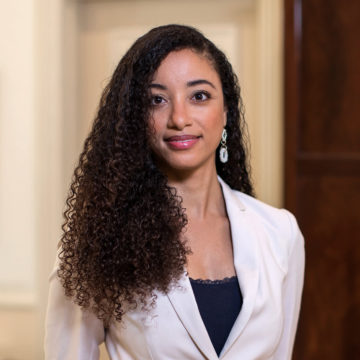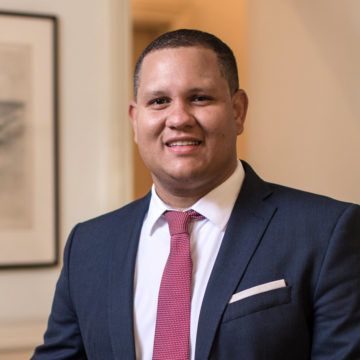The Curaçao UBO registry
The Curaçao UBO registry
June 25, 2024
Introduction
As of June 8, 2024, the National Decree UBO registration (“Decree”) has been enacted in Curaçao. This Decree is one of the concrete implementations of Curaçao’s commitment to meet the Financial Action Task Force standards. To that end, the local Chamber of Commerce (“CoC”) has been entrusted with the institution and management of the UBO registry. The UBO registry brings about important requirements that need to be met by all legal entities which are held liable to keep an administration (“legal entities”) in Curaçao .[1] The term “UBO” is an abbreviation for ultimate beneficial owner.
Scope of applicability
It is important to note that all legal entities are subject to the Decree. Hence, all legal entities are required to continually be compliant in providing the CoC with information pertaining to i.e. the identity and residency of its ultimate beneficial owners.
Access to the UBO registry
Access to the information in the UBO registry is limited solely to the Public Prosecutors Office, the Central Bank of Curaçao and Sint Maarten, the departments of analysis and supervision of the Financial Intelligence Unit and the Tax Inspector (in Dutch respectively: het Openbaar Ministerie, de Centrale Bank van Curaçao en Sint Maarten, de Financiële Inlichtingen Eenheid en de Inspecteur der Belastingen) insofar as these organizations require access to comply with their statutory obligations. Pending parliamentary approval, the Gaming Control Board, which is tasked with the supervision of the (e-)gaming sector, will also be added to this limited list.
Unlike Aruba and The Netherlands, service providers operating in or from Curaçao which are subject to Curaçao’s implementation of AML/CFT are however not required nor able to gain access to the information in the UBO registry. This gives Curaçao an important privacy safeguarding edge within The Kingdom of The Netherlands.
Ultimate Beneficial Owner
The natural person who qualifies as the ultimate beneficial owner of a legal entity depends on the legal form of the legal entity. In short:
- For public limited companies and private limited companies (in Dutch respectively: naamloze vennootschap and besloten vennootschap) and other similar foreign legal forms established in Curaçao, the natural person who ultimately owns or controls 25% or more of the entity or has the ability to exercise 25% of the ultimate effective control over the company, will be deemed as the ultimate beneficial owner. If no ultimate beneficial owner in the aforementioned sense can be designated, the board members are deemed as the ultimate beneficial owners. Comparable criteria apply to determine the ultimate beneficial owner of associations, mutual insurance companies, cooperatives (in Dutch respectively: vereniging, onderlinge waarborgmaatschappij and coöperatie) and other similar foreign legal entities established in Curaçao.
- In case of private partnerships (in Dutch: personenvennootschap) based on Curaçao law, every natural person with any degree of ultimate effective control in the form of voting rights and or any natural person with profit-sharing rights is deemed as the ultimate beneficial owner.
- The ultimate beneficial owners for foundations, private foundations, religious communities, trusts (in Dutch: stichting, stichting particulier fonds, kerkgenootschap and trust) and other similar foreign legal entities on the other hand, are the founders, board members, beneficiaries, trustees, protectors and any other natural person exercising ultimate effective control over the legal entity.
Information in the UBO registry
After a period of one month as of the date of enactment of the Decree, the CoC will start registering relevant information into the UBO registry that the CoC has already available on ultimate beneficial owners of existing legal entities. Such information could include, but is not limited to:
- The name, date of birth, country of birth, nationality of the UBO’s;
- Address and state of residence of the UBO’s;
- For Curaçao resident UBO’s: Crib-number (Curaçao tax identification number);
- For non-Curaçao resident UBO’s: the tax identification number of the country of residence, if applicable or the number of a valid identification document;
- Grounds for designation as UBO;
- A copy of a valid proof of identification of the UBO’s;
- For non-Curaçao resident UBO’s: an official document not older than six months that proves residency elsewhere;
- Percentage class of ultimate effective control, if applicable. These percentage classes are currently:
- 25%-50%
- 50%-75%
- 75%-100%
If the CoC does not already possess the abovementioned information, existing legal entities prior to June 8, 2024 have until July 1, 2025 to submit (changes in) such information with the CoC. New legal entities are however required to submit the abovementioned information to the CoC within two weeks of incorporation or establishment in Curaçao. Changes in the abovementioned information on the ultimate beneficial owner of new legal entities should be submitted within two weeks. After July 1, 2025, existing legal entities must submit changes in the information on the ultimate beneficial owner within two weeks. We presume such changes to be incidents such as but not limited to share transfers, death, emigration, and the commencement or cessation of a communal estate.
The CoC will examine whether the person submitting such information is a board-member or if the person has been authorized by the board of the legal entity. After examination of the submitted information, the CoC has the power to ultimately reject the submission on certain grounds and request that a new submission of information be made by the legal entity.
Failure to comply can ultimately result in fines of up to NAF 25.000 (approximately USD 14.000) or criminal prosecution.
Information in the UBO registry will be stored for 10 years after deregistration of the legal entity or if the natural person is no longer a UBO. After this period this information will be disposed of in accordance with the National Ordinance on Data Protection. Ultimate beneficial owners can request the CoC to be informed on the current status of their information in the UBO registry.
Submission of the relevant information and changes therein
The CoC has published the UBO-forms on its website. According to the decree however, a separate website will be launched for the UBO-registry. The information that the CoC has to its disposal once the website becomes operational will be transferred into the website’s database by the CoC.
Furthermore, it can be mentioned that the CoC will also receive information from notaries pertaining to incorporations, relevant changes to deeds and articles of incorporations within two weeks.
How we can be of service
HBN has a team specialized in providing assistance to determine the ultimate beneficial owner and subsequent changes to this status. Our professionals are ready and happy to assist you should any question arise regarding the submission of the required information or the timeframe in which certain information must be submitted.
[1] Reference is made to article 43(1)(c) in conjunction with article 45(15) of the General National Ordinance on Taxes.

